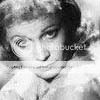Poetry Wednesday 07/09/08: Tennessee Williams
 For Poetry Wednesday this week, I am posting two great poems by Tennessee Williams because I feel they compliment my sister’s recent theme on couples.
For Poetry Wednesday this week, I am posting two great poems by Tennessee Williams because I feel they compliment my sister’s recent theme on couples.
One of America’s greatest playwrights, and certainly the greatest ever from the South, Tennessee Williams wrote fiction and motion picture screenplays, but he also wrote some wonderful poetry.
If Tennessee Williams had never written a single play he would still be known as a distinguished poet. The excitement, compassion, lyricism, and humor that epitomize his writing for the theater are all present in his poetry.
Born to Cornelius and Edwina Dakin Williams on March 26, 1911, in Columbus, Mississippi, Thomas Lanier “Tennessee” Williams was amply prepared for writing about society¹s outcasts. His mother was an aggressive woman, obsessed by her fantasies of genteel Southern living. His father, a traveling salesman for a large shoe manufacturer, was at turns distant and abusive. His older sister, Rose, was emotionally disturbed and destined to spend most of her life in mental institutions. He remained aloof from his younger brother, Dakin, whom his father repeatedly favored over both of the older children. Who could have fortold that this shy, sickly, confused young man would become one of America’s most famous playwrights.
More than a half century has passed since critics and theater-goers recognized Williams as an important American playwright, whose plays fellow dramaturge David Mamet calls “the greatest dramatic poetry in the American language”. Williams’s repertoire includes some 30 full-length plays, numerous short plays, two volumes of poetry, and five volumes of essays and short stories. He won two Pulitzer Prizes (for A Streetcar Named Desire in 1947 and Cat on a Hot Tin Roof in 1955), and was the first playwright to receive, in 1947, the Pulitzer Prize for drama, the Donaldson Award, and the New York Drama Critics Circle Award in the same year.
The “mad heroine” theme that appeared in many of his plays seemed clearly influenced by the life of Williams’ sister Rose. Characters in his plays are often seen as representations of his family members. Laura Wingfield in The Glass Menagerie was understood to be modeled after Rose. Some biographers believed that the character of Blanche DuBois in A Streetcar Named Desire is also based on her, as well as Williams himself. When Williams wrote A Streetcar Named Desire, he believed he was going to die and that this play would be his swan song.
Amanda Wingfield in The Glass Menagerie was generally seen to represent Williams’ mother. Characters such as Tom Wingfield in The Glass Menagerie and Sebastian in Suddenly, Last Summer were understood to represent Williams himself. In addition, he used a lobotomy operation as a motif in Suddenly, Last Summer.
Cat on a Hot Tin Roof included references to elements of Williams’ life such as homosexuality, mental instability and alcoholism.

Life Story
by Tennessee Williams
After you’ve been to bed together for the first time,
without the advantage or disadvantage of any prior acquaintance,
the other party very often says to you,
what’s your story? And you think maybe they really and truly do
sincerely want to know your life story, and so you light up
a cigarette and begin to tell it to them, the two of you
lying together in completely relaxed positions
like a pair of rag dolls a bored child dropped on a bed.
You tell them your story, or as much of your story
as time or a fair degree of prudence allows, and they say,
Oh, oh, oh, oh, oh,
each time a little more faintly, until the oh
is just an audible breath, and then of course
there’s some interruption. Slow room service comes up
with a bowl of melting ice cubes, or one of you rises to pee
and gaze at himself with mild astonishment in the
bathroom mirror.
And then, the first thing you know, before you’ve had time
to pick up where you left off with your enthralling life
story,
they’re telling you their life story, exactly as they’d
intended to all along,
and you’re saying, Oh, oh, oh, oh, oh,
each time a little more faintly, the vowel at last becoming
no more than an audible sigh,
as the elevator, halfway down the corridor and a turn to
the left,
draws one last, long, deep breath of exhaustion
and stops breathing forever. Then?
Well, one of you falls asleep
and the other one does likewise with a lighted cigarette in
his mouth,
and that’s how people burn to death in hotel rooms.

Drinkers by E. Denis
The Wine-Drinkers
by Tennessee Williams
The wine-drinkers sit on the porte cochère in the sun.
Their lack of success in love has made them torpid.
They move their fans with a motion that stirs no feather,
the glare of the sun has darkened their complexions.
Let us commend them on their conversations.
One says “oh” and the other says “indeed.”
The afternoon must be prolonged forever, because the night
will be impossible for them.
They know that the bright and very delicate needles
inserted beneath the surfaces of their skins
will work after dark–at present are drugged, are dormant.
Nobody dares to make any sudden disturbance.
One says “no,” the other one murmurs “why?”
The cousins pause: tumescent.
What do they dream of? Murder?
They dream of lust and they long for violent action
but none occurs.
Their quarrels perpetually die from a lack of momentum
The light is empty: the sun forestalls reflection.
 Well, thank y’all for comin’. I hope y’all enjoyed your stay. Click here to get back to Sans Souci, our poetess hostess with the mostess. Whoever you are, I always depend on the kindness of strangers.
Well, thank y’all for comin’. I hope y’all enjoyed your stay. Click here to get back to Sans Souci, our poetess hostess with the mostess. Whoever you are, I always depend on the kindness of strangers.
Viewing HistoryViewed 26 times by 14 people, latest on Jul 10, ’08 |
|

 Add a Comment
Add a Comment
Comments
Poetry Wednesday 07/09/08: Tennessee Williams — No Comments
HTML tags allowed in your comment: <a href="" title=""> <abbr title=""> <acronym title=""> <b> <blockquote cite=""> <cite> <code> <del datetime=""> <em> <i> <q cite=""> <s> <strike> <strong>